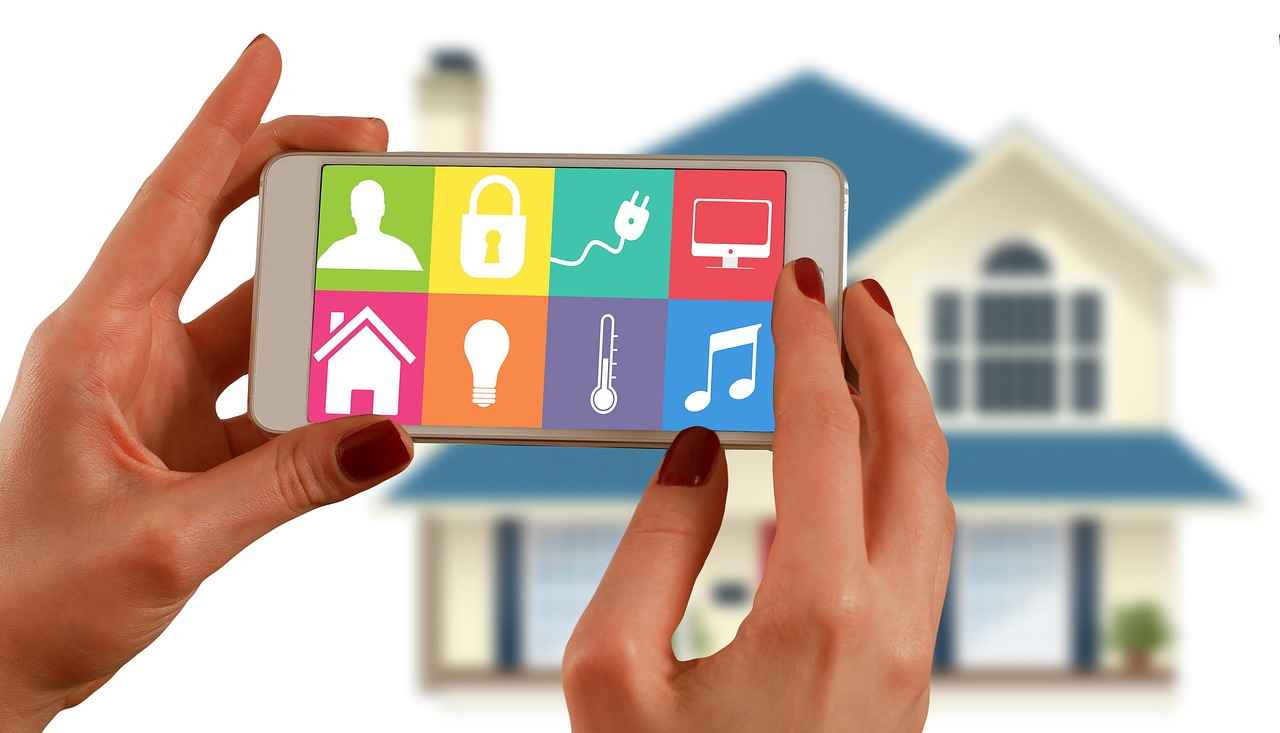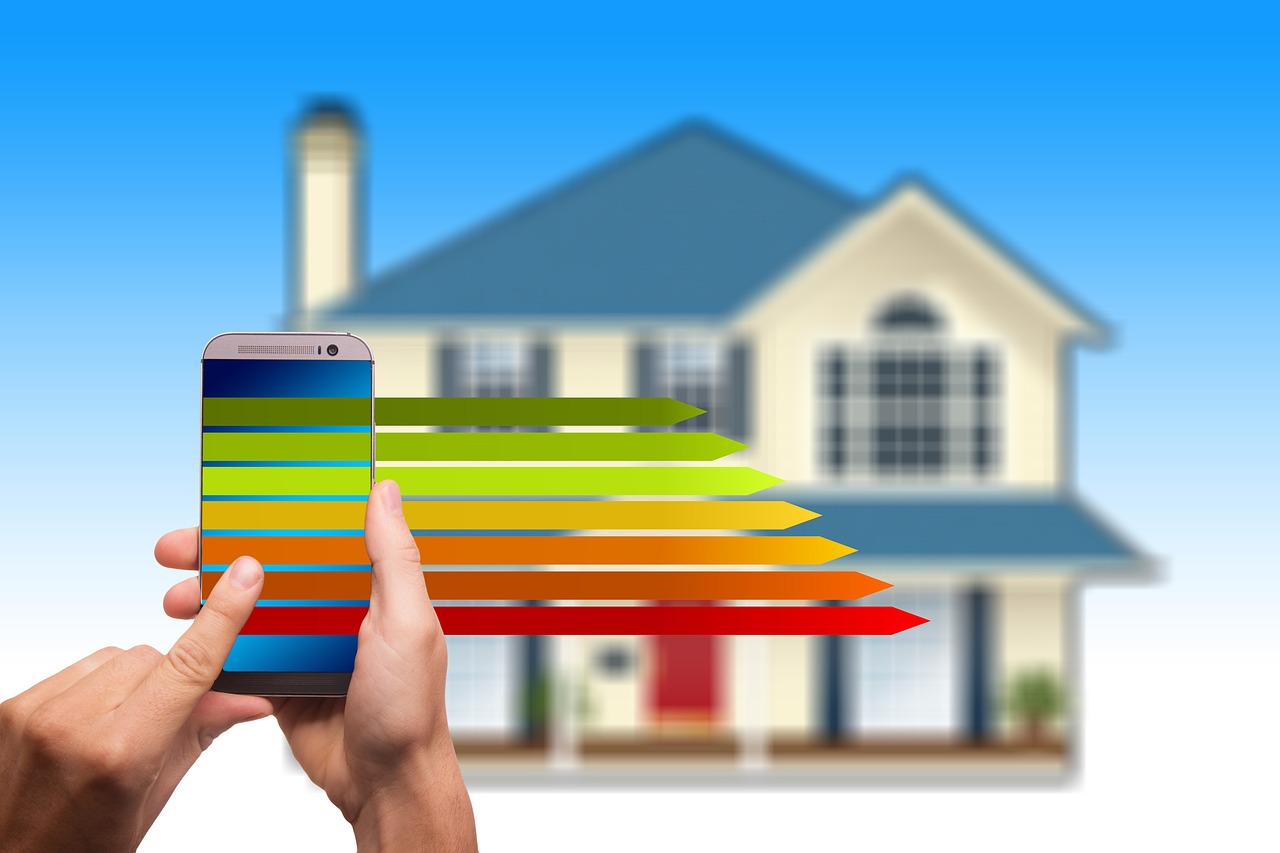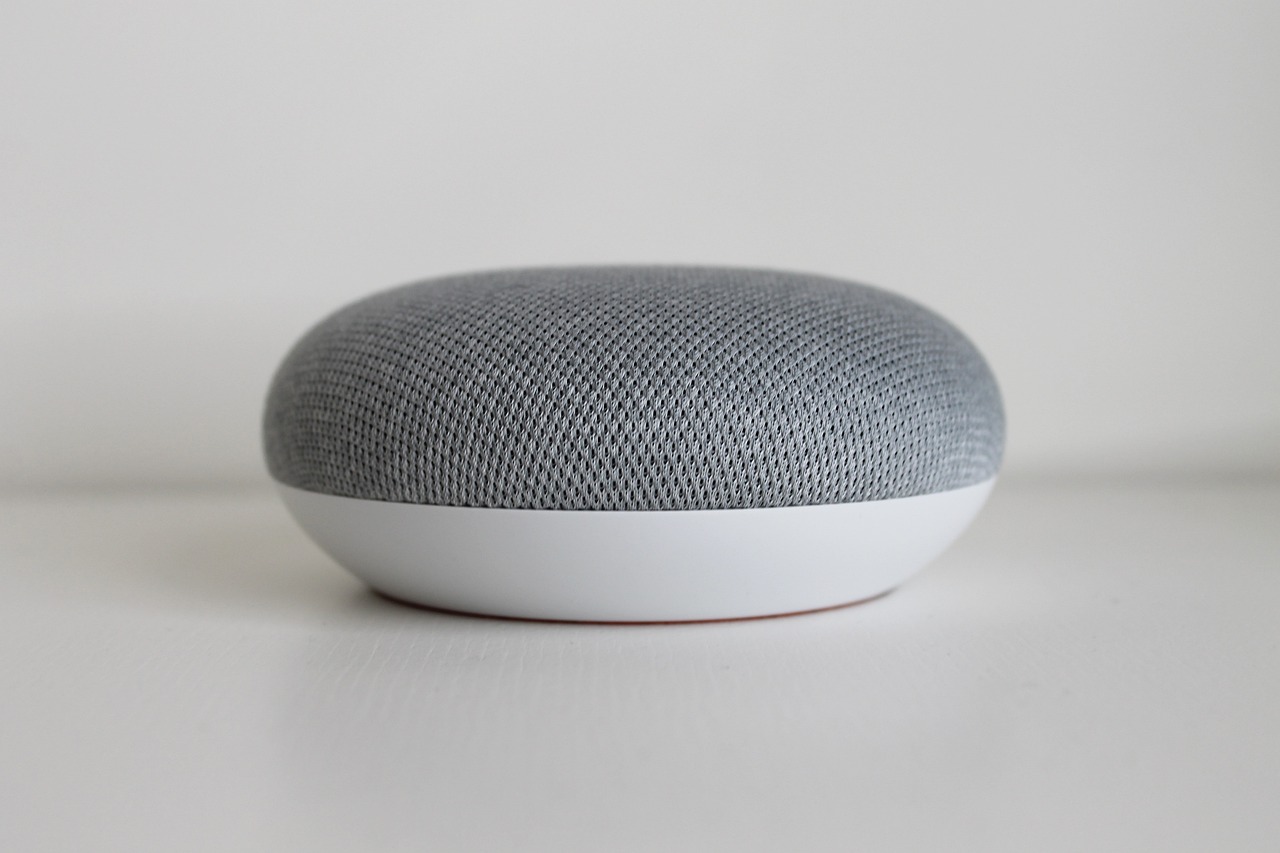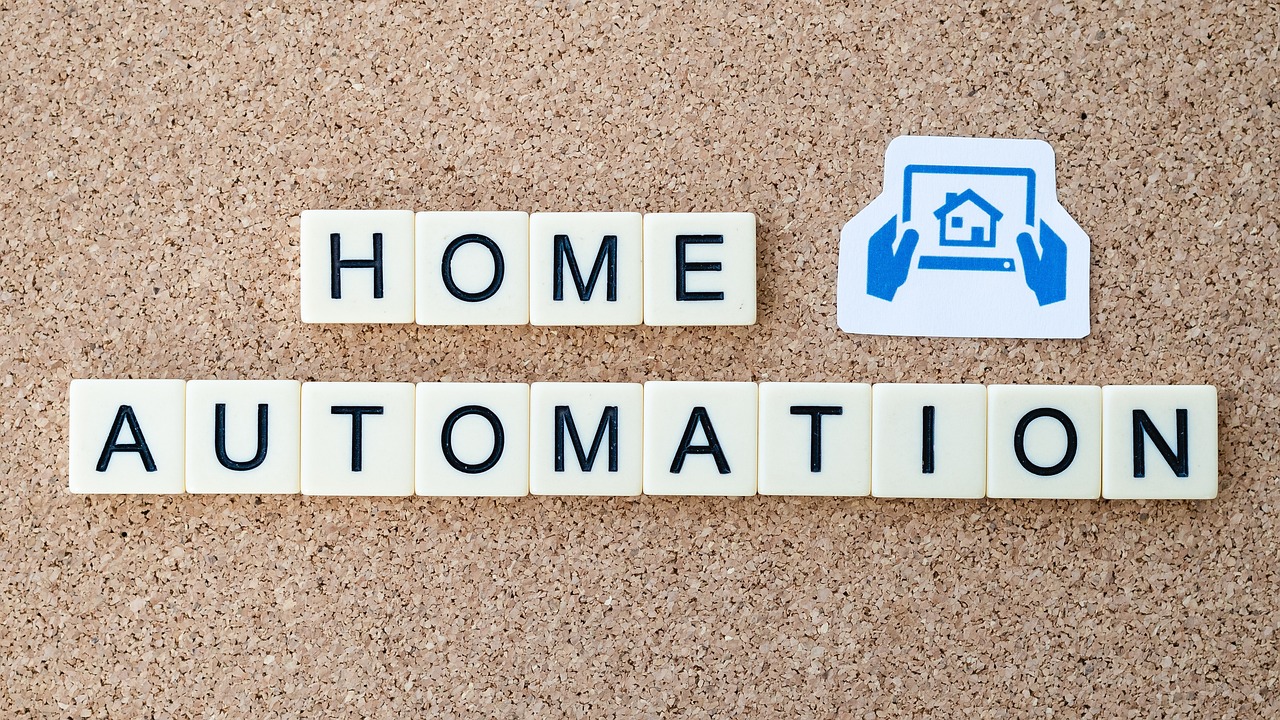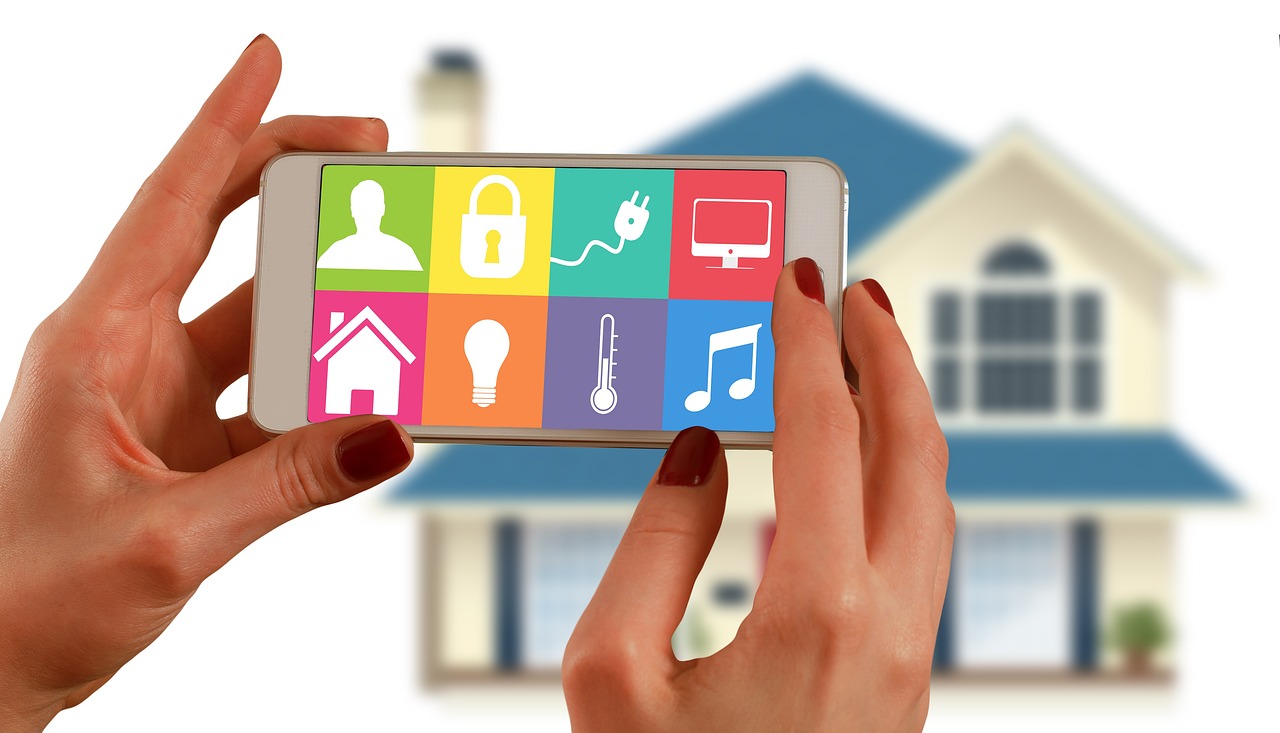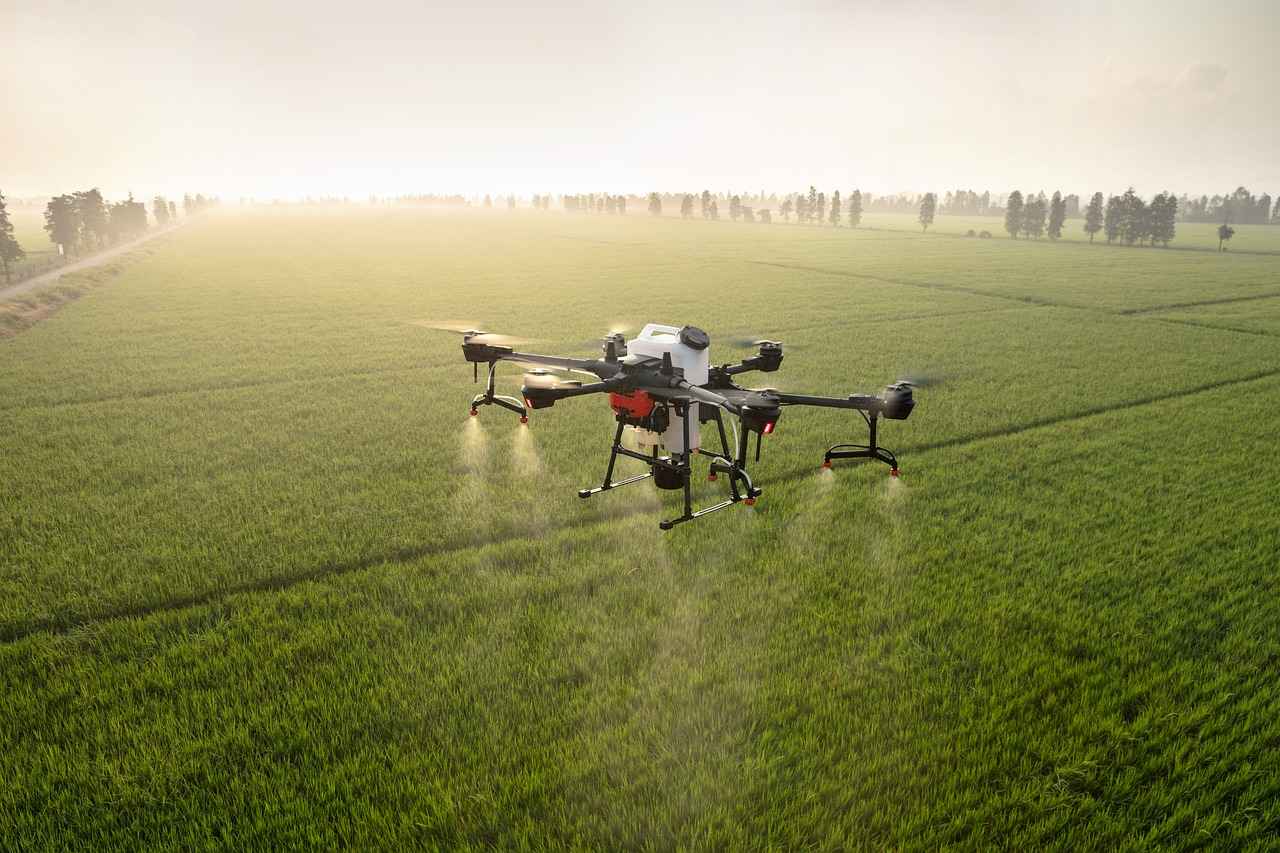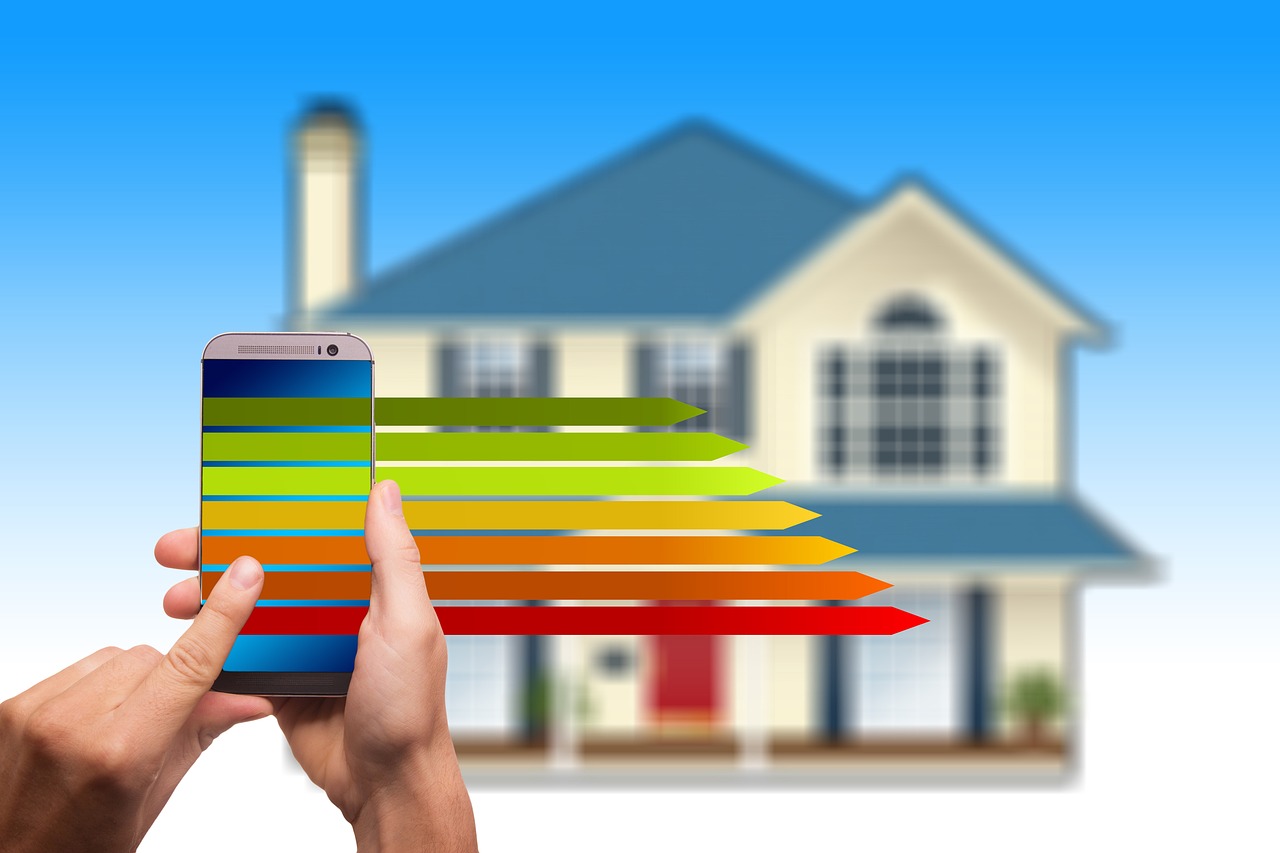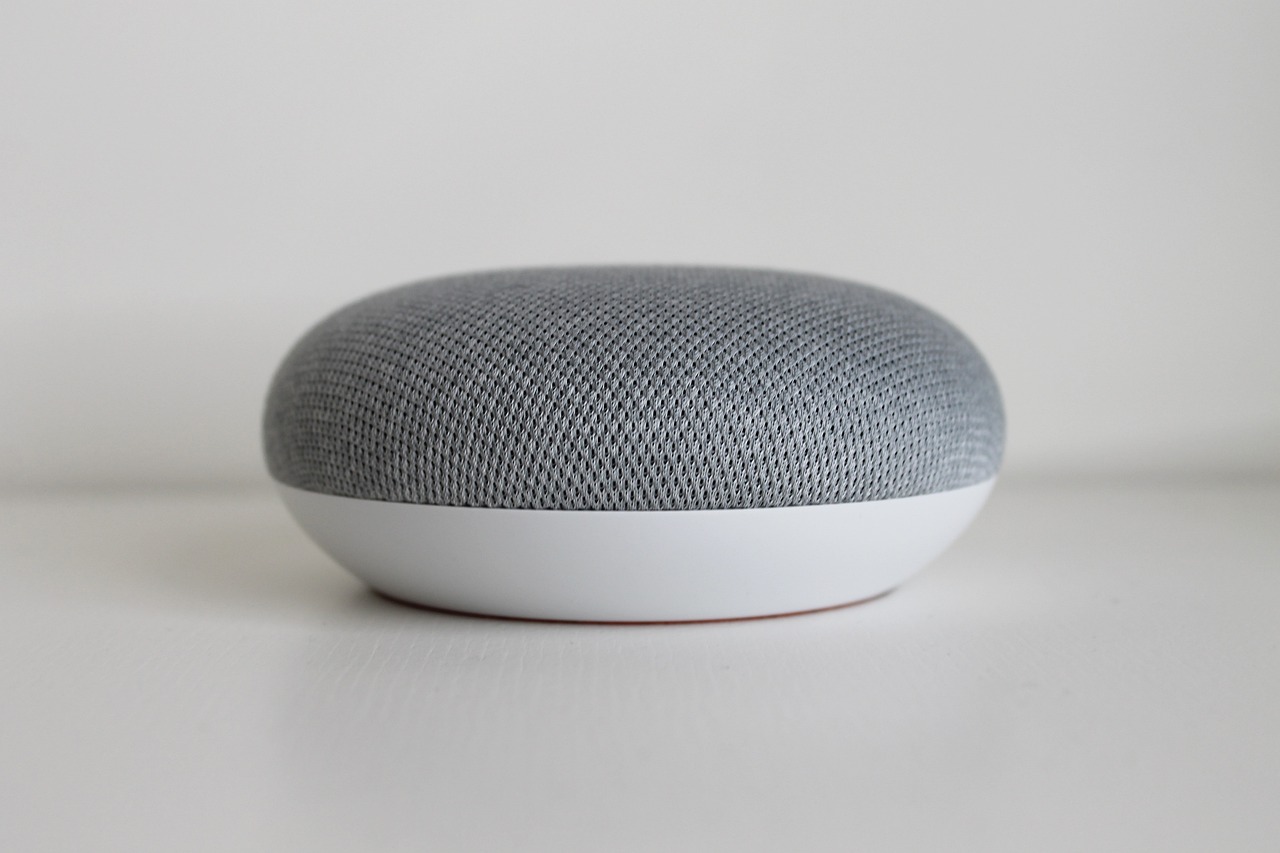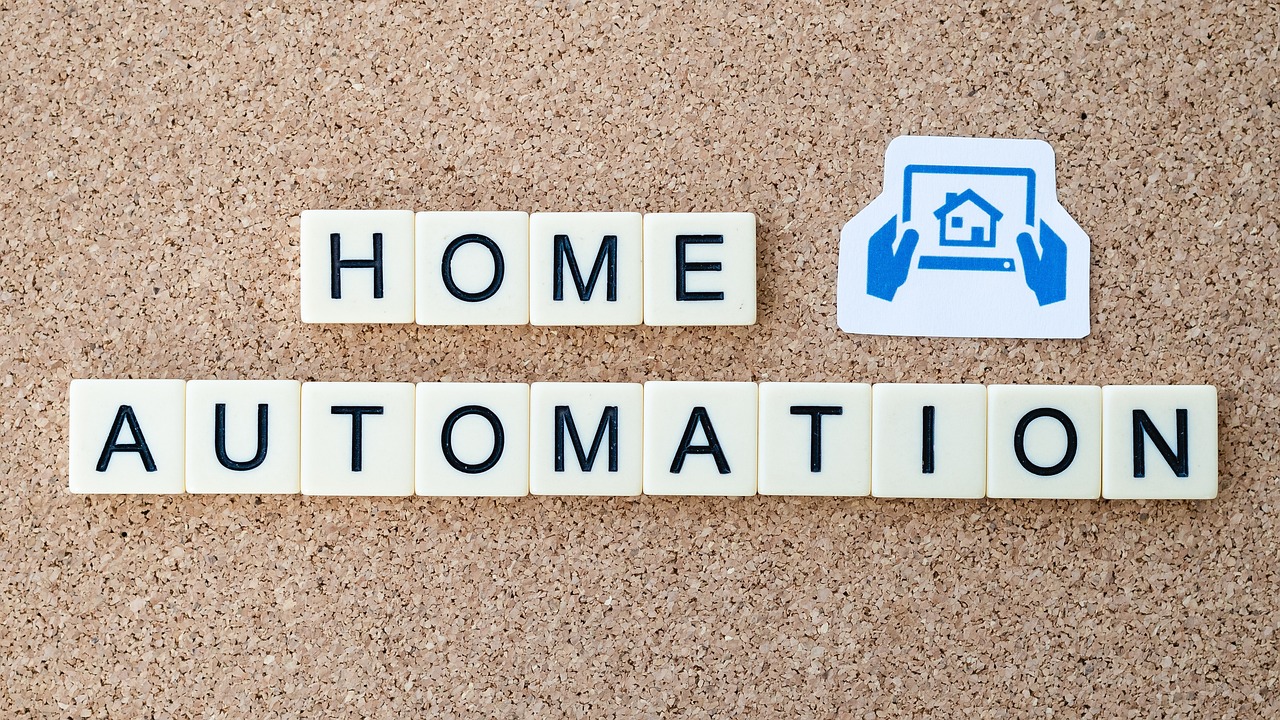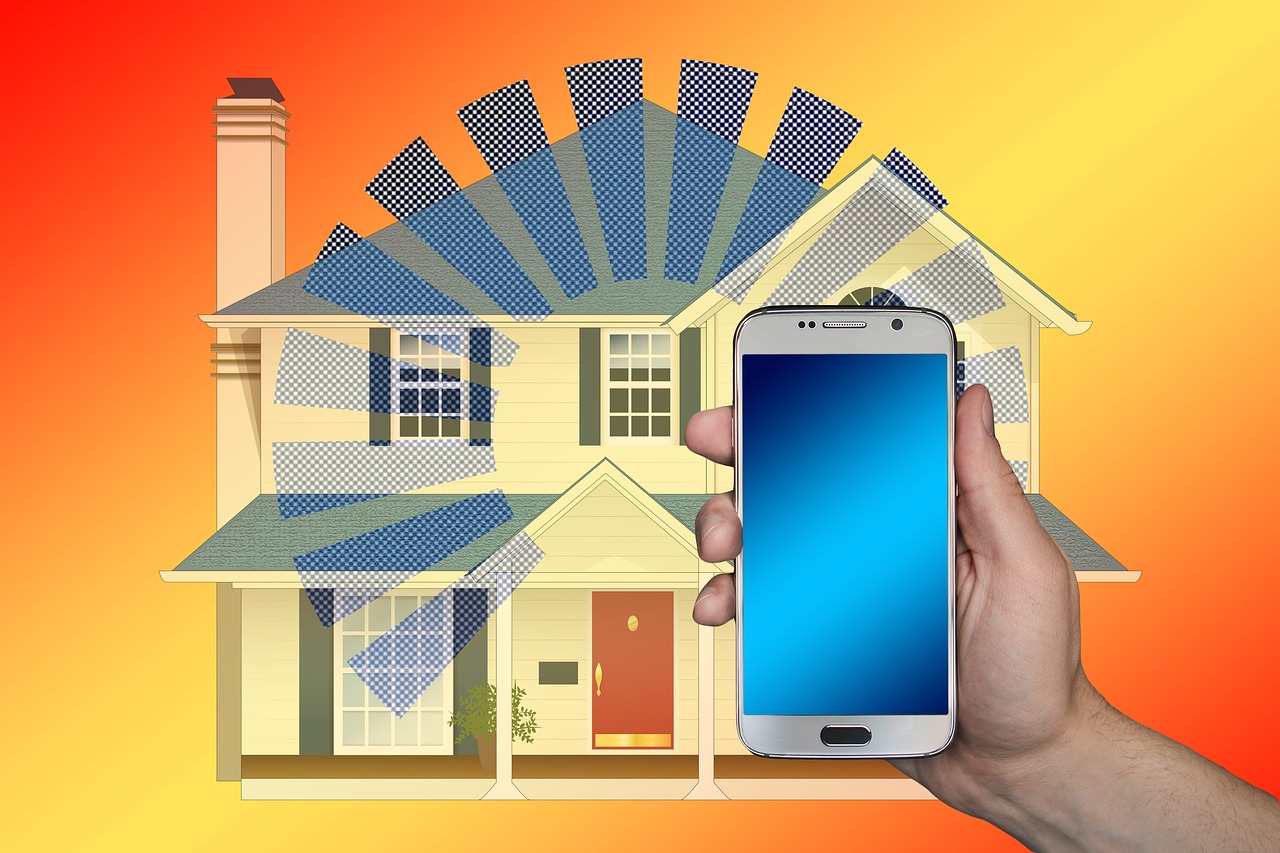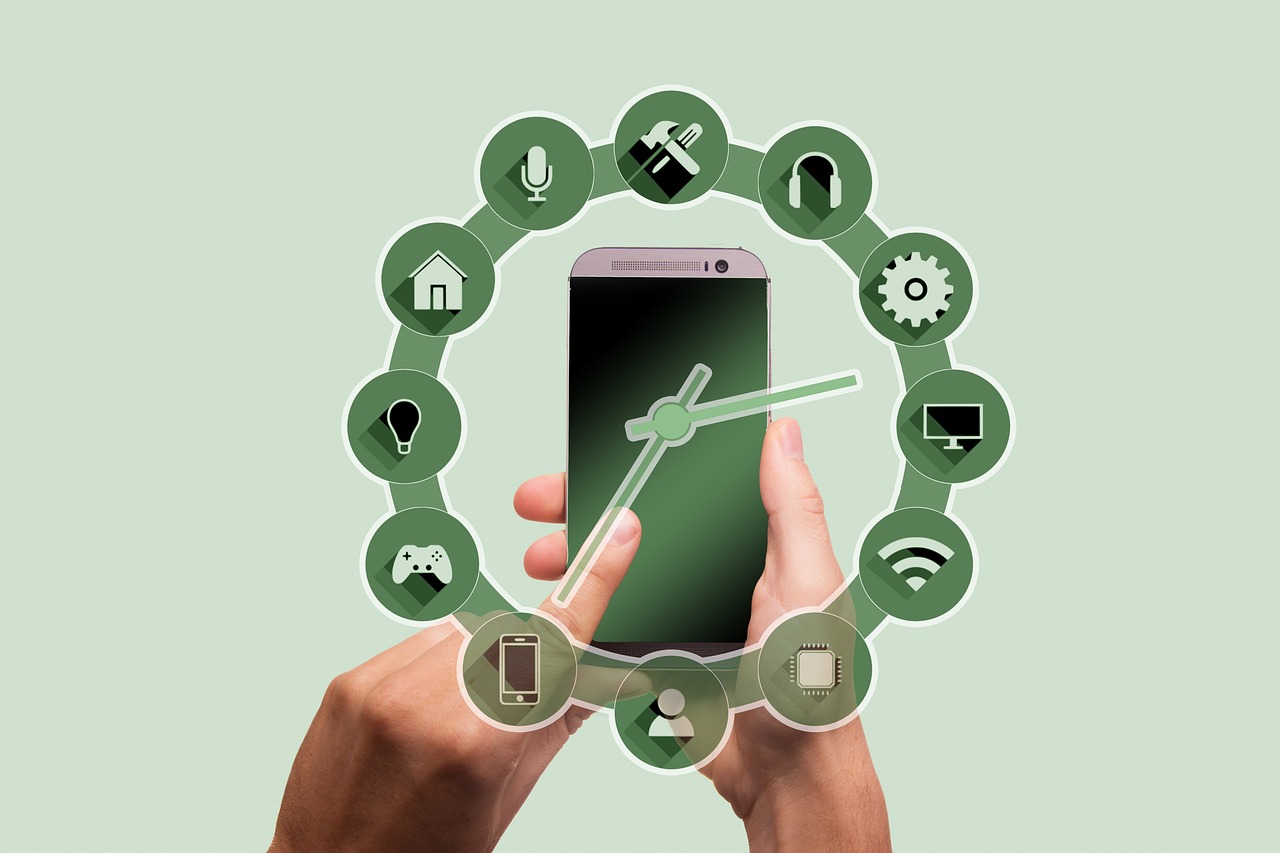This article delves into the transformative impact of artificial intelligence on smart home devices, highlighting their numerous benefits, advanced functionalities, and the ways they enhance daily living for homeowners.
What Are AI Smart Home Devices?
AI smart home devices are cutting-edge technologies that leverage artificial intelligence to automate various tasks, enhance security, and improve overall home management efficiency. These devices range from smart thermostats to intelligent security systems, all designed to make life easier and more convenient for homeowners.
Benefits of Using AI in Smart Homes
Integrating AI into smart home devices offers a wealth of advantages:
- Energy Savings: AI devices optimize energy consumption, leading to significant reductions in utility bills.
- Enhanced Security: Smart security systems utilize AI to detect unusual activities and alert homeowners.
- Increased Convenience: Homeowners can manage their daily routines more efficiently with AI assistance.
Energy Efficiency and Cost Savings
AI smart home devices are instrumental in optimizing energy consumption:
- Smart Thermostats: These devices learn your preferences and adjust heating and cooling automatically, ensuring comfort while saving energy.
- Smart Lighting Systems: AI-driven lighting can change brightness and color based on activities, enhancing ambiance and minimizing energy use.
Enhanced Home Security
AI technology significantly improves home security through:
- Smart Cameras: These devices can recognize faces and detect motion, providing real-time alerts and video feeds.
- Smart Alarms: AI systems analyze patterns to notify homeowners of potential threats.
How AI Devices Improve Daily Living
AI smart home devices simplify everyday tasks:
- Voice-Activated Assistants: Devices like Amazon Alexa and Google Assistant offer hands-free control, making it easier to manage tasks.
- Automated Home Management: AI can automate grocery shopping and remind homeowners about maintenance tasks.
Popular AI Smart Home Devices in the Market
Several AI smart home devices have gained popularity:
- Smart Speakers: These serve as central hubs, controlling other smart devices while providing entertainment.
- Smart Security Cameras: Advanced features like facial recognition enhance home security.
Challenges and Considerations
Despite their benefits, AI smart home devices come with challenges:
- Data Privacy Issues: The collection of personal data raises concerns about privacy and data security.
- Dependence on Internet Connectivity: Many devices require a stable internet connection, which can limit functionality in some areas.
The Future of AI in Smart Homes
The future of AI in smart homes promises exciting advancements:
- Integration with IoT: AI combined with the Internet of Things will create smarter, interconnected home environments.
- Advancements in Machine Learning: Continuous improvements will allow devices to adapt more effectively to user preferences.
Conclusion: Embracing AI for a Smarter Home
Embracing AI smart home devices can significantly enhance your living experience, providing convenience, security, and efficiency tailored to modern lifestyles. As technology continues to evolve, the potential for smarter homes will only expand, making it an exciting time for homeowners.

What Are AI Smart Home Devices?
AI Smart Home Devices represent a significant leap forward in home automation technology. These devices utilize artificial intelligence to not only streamline daily tasks but also to enhance the overall security and efficiency of our living spaces. By integrating AI, these smart devices learn from user behaviors, adapt to individual preferences, and provide a level of convenience that was previously unimaginable.
In essence, AI smart home devices are designed to make life easier. They can automate mundane tasks such as adjusting thermostats, controlling lighting, and even managing home security systems. This automation not only saves time but also ensures that homes are more energy-efficient, contributing to lower utility bills and a reduced carbon footprint.
One of the most compelling features of these devices is their ability to enhance security. Smart security cameras and alarm systems equipped with AI can detect unusual patterns and alert homeowners in real-time. This proactive approach to safety provides peace of mind, allowing individuals to focus on their daily activities without constant worry.
Moreover, AI smart home devices improve the overall user experience by offering seamless integration with other technologies. For example, a smart assistant can control various devices through voice commands, making it easier to manage household tasks without lifting a finger. This level of automation transforms the way we interact with our homes, making them not just more comfortable but also smarter.
As the technology continues to evolve, we can anticipate even more advanced features and functionalities in AI smart home devices. With ongoing improvements in machine learning and IoT (Internet of Things) integration, the future of home management looks brighter than ever.
In conclusion, AI smart home devices are revolutionizing the way we live by providing enhanced convenience, security, and efficiency. As homeowners increasingly embrace these innovations, the potential for smarter, more efficient living environments will continue to grow.

Benefits of Using AI in Smart Homes
Integrating artificial intelligence into smart home devices brings a myriad of benefits that revolutionize how we interact with our living spaces. These advancements not only enhance comfort and convenience but also promote energy efficiency and security. Below are some key advantages of using AI in smart homes:
- Energy Efficiency: AI technologies can optimize energy usage by learning household patterns and adjusting settings accordingly. For instance, smart thermostats can detect when you are home or away, adjusting heating and cooling to save energy without sacrificing comfort.
- Enhanced Security: AI-powered security systems use advanced algorithms to monitor activities around your home. They can differentiate between regular movements and potential threats, sending alerts to homeowners in real-time, thus enhancing peace of mind.
- Increased Convenience: Voice-activated assistants streamline daily tasks, allowing homeowners to control lights, appliances, and entertainment systems effortlessly. This hands-free operation is particularly beneficial for those with mobility challenges or busy lifestyles.
- Personalization: AI learns user preferences over time, allowing for tailored experiences. For example, smart lighting can adjust brightness and color based on the time of day or specific activities, creating the perfect atmosphere for any occasion.
- Automated Maintenance: AI systems can remind homeowners about maintenance tasks, like changing air filters or scheduling repairs, ensuring that the home remains in optimal condition without constant supervision.
These benefits collectively contribute to a more manageable and efficient lifestyle, making AI integration in smart homes a worthwhile investment for modern homeowners.
Energy Efficiency and Cost Savings
In today’s world, where energy conservation and cost efficiency are paramount, AI smart home devices are stepping up to the challenge. These innovative technologies not only streamline household management but also play a crucial role in optimizing energy consumption. By employing advanced algorithms and machine learning, these devices can significantly reduce energy waste, leading to substantial savings on utility bills while promoting environmental sustainability.
Energy efficiency refers to the use of technology that requires less energy to perform the same function. With the integration of artificial intelligence, smart home devices can analyze usage patterns and make real-time adjustments. For example, smart thermostats can learn when you are home or away, adjusting the temperature accordingly to minimize energy usage without sacrificing comfort.
- Smart Thermostats: These devices can reduce heating and cooling costs by up to 30% by optimizing temperature settings based on your daily routine.
- Smart Lighting: AI-driven lighting systems can automatically turn off lights in unoccupied rooms and adjust brightness based on natural light availability, further reducing energy consumption.
- Energy Monitoring Systems: These systems provide real-time data on energy usage, helping homeowners identify areas where they can cut back on consumption and save money.
Beyond financial savings, the impact of AI smart home devices extends to the environment. By reducing energy waste, these technologies contribute to lower carbon footprints. This shift towards sustainable living aligns with global efforts to combat climate change, making AI smart home devices not just a personal benefit but a collective responsibility.
As technology continues to evolve, the potential for AI smart home devices to enhance energy efficiency and reduce costs will only grow. Homeowners who embrace these innovations will not only enjoy lower utility bills but also contribute to a more sustainable future.
Smart Thermostats
are a remarkable innovation in the realm of home automation, designed to enhance energy efficiency and comfort. These advanced devices utilize cutting-edge technology to learn and adapt to your heating and cooling preferences, ensuring that your home remains at the ideal temperature while minimizing energy consumption.
One of the standout features of smart thermostats is their ability to automatically adjust settings based on your daily routines. For instance, when you leave home, the thermostat can lower the heating or cooling to save energy. Conversely, it can pre-heat or pre-cool your home before you return, ensuring a comfortable environment upon your arrival.
Additionally, many smart thermostats come equipped with geofencing technology. This feature uses your smartphone’s location to determine when you are away from home and adjusts the temperature accordingly. This not only leads to significant energy savings but also contributes to a reduced carbon footprint, making it an environmentally friendly choice.
| Feature | Description |
|---|---|
| Learning Capability | Adapts to your schedule and preferences over time. |
| Remote Access | Control your thermostat from anywhere using a smartphone app. |
| Energy Reports | Provides insights on energy usage to help you save more. |
Moreover, many smart thermostats are compatible with other smart home devices, allowing for a fully integrated home experience. For example, they can work in tandem with smart speakers or lighting systems to create a cohesive smart environment.
In conclusion, represent a significant leap forward in home technology. By learning your preferences and adjusting automatically, they not only enhance your comfort but also promote energy efficiency and sustainability. Investing in a smart thermostat is a step towards a smarter, more efficient home.
Smart Lighting Systems
are revolutionizing the way we interact with our living spaces, thanks to the integration of artificial intelligence. These advanced systems not only provide lighting solutions but also adapt to our daily activities, creating an environment that enhances both comfort and efficiency.
One of the most significant advantages of AI-driven lighting systems is their ability to automatically adjust brightness and color temperature based on the specific needs of the moment. For instance, during the day, they can emit a cool white light that promotes alertness and productivity, while in the evening, they can shift to a warmer hue, creating a relaxing ambiance perfect for winding down.
Moreover, these systems utilize sensors and machine learning algorithms to analyze user behavior and preferences. This means that over time, the lighting can be tailored to fit your routine, automatically dimming or brightening in response to your activities. For example, if you frequently watch movies in the evening, the system can learn this pattern and adjust the lighting accordingly, enhancing your viewing experience while minimizing energy consumption.
In addition to enhancing ambiance, AI-driven lighting systems are designed with energy efficiency in mind. By utilizing smart technology, these systems can significantly reduce electricity usage, leading to lower utility bills and a smaller carbon footprint. They can turn off lights when a room is unoccupied or adjust brightness levels based on natural light availability, ensuring that energy is not wasted.
In conclusion, represent a significant step forward in home automation. By combining convenience, energy efficiency, and personalized settings, they create an environment that is not only functional but also enhances our quality of life. As technology continues to evolve, we can expect even more innovative features that will further transform our living spaces.
Enhanced Home Security
is a critical aspect of modern living, and with the advent of artificial intelligence (AI), homeowners can now enjoy unprecedented levels of safety and peace of mind. AI technology has revolutionized home security through the implementation of smart cameras, alarms, and locks that are not only intuitive but also capable of learning from their environment.
One of the most significant advantages of AI in home security is its ability to detect unusual activities. For instance, smart cameras are equipped with advanced algorithms that can recognize familiar faces and alert homeowners if an unknown individual is detected. This real-time monitoring allows homeowners to respond swiftly to potential threats, enhancing their overall safety.
Moreover, AI-powered alarms can learn the typical patterns of movement within a home. By understanding when family members are typically present or absent, these systems can minimize false alarms while remaining vigilant against genuine threats. When unusual behavior is detected, homeowners receive instant notifications on their smartphones, allowing them to take immediate action.
In addition to cameras and alarms, AI-enhanced smart locks offer an extra layer of security. These locks can be programmed to recognize specific individuals, providing access only to authorized users. For example, if a family member forgets their key, the homeowner can unlock the door remotely via a smartphone app, ensuring that help is always just a tap away.
Furthermore, the integration of AI with other smart home devices creates a comprehensive security ecosystem. For instance, when a smart camera detects movement, it can trigger other devices, such as turning on lights or locking doors, to create the illusion of occupancy, deterring potential intruders.
In conclusion, AI technology significantly enhances home security by providing smart solutions that learn and adapt to the homeowner’s lifestyle. With features that include real-time alerts, personalized access, and comprehensive monitoring, AI-driven security devices are essential for ensuring a safe and secure living environment.

How AI Devices Improve Daily Living
In today’s fast-paced world, AI smart home devices are becoming essential tools for enhancing everyday life. These innovative technologies not only automate mundane tasks but also allow homeowners to reclaim their time and focus on what truly matters. By integrating AI into daily routines, individuals can experience a seamless blend of convenience, efficiency, and comfort.
Streamlining Daily Tasks
AI devices are designed to simplify various household chores. For example, smart assistants like Amazon Alexa or Google Assistant can manage schedules, set reminders, and even control other smart devices with just a voice command. This hands-free interaction minimizes distractions and allows for multitasking, making it easier to stay organized.
Automating Home Management
With AI technology, many household tasks can be automated. For instance, smart refrigerators can track food inventory and suggest grocery lists based on what is running low. Additionally, smart cleaning devices, such as robotic vacuums, can be scheduled to clean floors at specific times, ensuring that homes remain tidy without requiring constant effort from homeowners.
Enhancing Comfort and Convenience
AI devices also significantly enhance comfort in the home. Smart thermostats learn user preferences and adjust heating and cooling automatically, ensuring optimal comfort while saving energy. Furthermore, AI-driven lighting systems can adapt based on the time of day or activity, providing the right ambiance for every occasion.
Improving Safety and Security
Another critical aspect of AI devices is their ability to enhance home security. Smart cameras and alarm systems utilize AI to detect unusual activities, sending real-time alerts to homeowners. This added layer of security provides peace of mind, allowing individuals to feel safer in their own homes.
Conclusion
In conclusion, AI smart home devices are revolutionizing how we manage our daily lives. By automating tasks, improving comfort, and enhancing security, these technologies allow homeowners to focus on what truly matters—spending quality time with family and friends while enjoying a more efficient and enjoyable living environment.
Voice-Activated Assistants
have revolutionized the way we interact with technology in our homes. Devices like Amazon Alexa and Google Assistant offer a seamless, hands-free experience that simplifies various daily tasks. These intelligent assistants utilize advanced artificial intelligence to recognize voice commands, enabling users to control smart home devices, access information, and manage schedules effortlessly.
The convenience of voice-activated assistants extends beyond mere control; they enhance the overall smart home ecosystem. For instance, users can adjust their smart thermostats or smart lighting systems with simple voice commands, eliminating the need for manual adjustments. This not only saves time but also allows for a more personalized living environment.
Additionally, voice-activated assistants can integrate with other smart devices, creating a cohesive system that responds to user preferences. For example, a user can say, “Good morning,” and the assistant can turn on the lights, start the coffee maker, and provide a weather update, all in one command. This level of automation transforms daily routines into streamlined experiences.
Moreover, these assistants are constantly evolving. With ongoing advancements in machine learning, they become better at understanding context and nuances in speech, making interactions feel more natural. Users can ask complex questions or give multi-part commands, and the assistants can handle them efficiently.
However, it’s essential to consider privacy concerns associated with these devices. Voice-activated assistants often require access to personal data to function optimally, which raises questions about data security. Users should be aware of the privacy settings available and take steps to protect their information.
In conclusion, voice-activated assistants like Amazon Alexa and Google Assistant are invaluable tools that enhance the functionality of smart homes. They not only provide hands-free control over various devices but also contribute to a more efficient and enjoyable living experience. As technology continues to advance, the capabilities of these assistants will undoubtedly expand, making them even more integral to our daily lives.
Automated Home Management
is revolutionizing the way we handle our daily routines, making life not only more convenient but also more efficient. With the advent of AI technology, managing a household has transformed from a tedious chore into a seamless experience.
AI systems are designed to automate everyday tasks, such as grocery shopping and home maintenance reminders. This automation streamlines household management and saves valuable time for homeowners.
For instance, consider the process of grocery shopping. AI-enabled devices can track your pantry inventory and automatically generate shopping lists based on your consumption patterns. When you run low on essentials, the system can even place orders directly with your preferred grocery store, ensuring that you never run out of your favorite items.
Furthermore, AI can help manage home maintenance by sending timely reminders for essential tasks such as changing air filters, scheduling HVAC service, or even watering plants. This proactive approach not only keeps your home in top condition but also alleviates the stress of remembering every detail.
| Task | AI Automation Benefit |
|---|---|
| Grocery Shopping | Automatic list generation and online ordering |
| Home Maintenance | Timely reminders for essential upkeep |
| Energy Management | Optimize usage and reduce costs |
In addition to grocery and maintenance management, AI systems can also assist in scheduling and organizing daily activities. For example, smart calendars can sync with your devices, sending alerts for appointments and important events, ensuring that you stay on track without the hassle of manual entries.
Ultimately, the integration of AI into automated home management systems not only enhances convenience but also empowers homeowners to reclaim their time and focus on what truly matters in their lives. As technology continues to evolve, the possibilities for further automation in our homes are endless.

Popular AI Smart Home Devices in the Market
In today’s digital age, AI smart home devices have become increasingly popular among homeowners. These devices not only enhance convenience but also improve energy efficiency and security. Below, we explore some of the most sought-after AI smart home devices available today.
| Device Type | Description | Key Features |
|---|---|---|
| Smart Speakers | Devices that serve as a central hub for controlling other smart devices. |
|
| Smart Thermostats | Devices that learn your heating and cooling preferences to optimize energy use. |
|
| Smart Security Cameras | Cameras that utilize AI to enhance home security through facial recognition and motion detection. |
|
| Smart Lighting Systems | Lighting solutions that adjust based on user preferences and activities. |
|
These devices exemplify how AI technology can transform everyday living, making homes not only smarter but also more efficient. The integration of these devices into daily routines leads to a more streamlined and enjoyable home environment.
As technology advances, we can expect even more innovative features and capabilities from AI smart home devices, further enhancing their role in modern households.
Smart Speakers
have revolutionized the way we interact with technology in our homes. These devices serve not just as audio players but as central hubs that streamline the management of various smart devices, enhancing the overall smart home experience.
With the integration of voice recognition technology, smart speakers allow users to control their home environment effortlessly. Whether it’s adjusting the thermostat, dimming the lights, or locking the doors, these devices provide a seamless interface for managing home automation.
One of the key features of smart speakers is their ability to play music. Users can request their favorite songs, playlists, or even specific genres simply by using their voice. This hands-free capability adds a layer of convenience, making it easy to enjoy entertainment without the need for physical controls.
In addition to music playback, smart speakers are equipped with virtual assistants like Amazon Alexa or Google Assistant. These assistants can provide real-time information such as weather updates, news briefings, or traffic reports. The ability to ask questions and receive instant answers makes daily life more manageable and informative.
Moreover, smart speakers can integrate with a wide range of other smart devices. For instance, they can connect to smart lights, security systems, and even kitchen appliances, allowing users to create customized routines. For example, a morning routine could be set up to gradually brighten the lights, start the coffee maker, and play uplifting music—all initiated by a single voice command.
However, it’s essential to consider the privacy implications that come with using smart speakers. Since these devices are always listening for commands, users must be mindful of the data they share and the potential for unauthorized access. Ensuring that your devices are updated and secured can help mitigate these risks.
In conclusion, smart speakers are much more than just music players; they are integral to the smart home ecosystem. By providing hands-free control, instant information, and the ability to manage other smart devices, they significantly enhance the convenience and efficiency of modern living.
Smart Security Cameras
have revolutionized home security by leveraging the power of artificial intelligence. These advanced devices not only enhance safety but also provide homeowners with peace of mind through real-time monitoring and alerts.
One of the key features of is their ability to recognize faces. This functionality allows the camera to differentiate between familiar faces and strangers, sending alerts only when unknown individuals are detected. This reduces unnecessary notifications and helps homeowners focus on genuine security threats.
In addition to facial recognition, these cameras are equipped with motion detection technology. This feature enables them to monitor activity around the home continuously. When motion is detected, homeowners receive instant alerts via their smartphones, allowing them to check live video feeds from anywhere in the world. This capability is particularly useful for monitoring deliveries or keeping an eye on children playing outside.
| Feature | Description |
|---|---|
| Facial Recognition | Identifies known individuals and alerts homeowners of strangers. |
| Motion Detection | Detects movement and sends real-time alerts to homeowners. |
| Night Vision | Allows for monitoring in low-light conditions. |
| Two-Way Audio | Enables communication through the camera, allowing homeowners to interact with visitors. |
Moreover, many smart cameras come with cloud storage options, allowing homeowners to save video footage for later review. This is particularly beneficial in the event of a security incident, as recorded evidence can be crucial for investigations.
In conclusion, represent a significant advancement in home security technology. By utilizing AI for facial recognition and motion detection, they provide homeowners with enhanced security, convenience, and peace of mind. Investing in these devices can lead to a safer living environment, making them an essential addition to any modern home.

Challenges and Considerations
As the popularity of AI smart home devices continues to rise, it is crucial to examine the challenges and considerations that accompany their integration into our daily lives. While these devices offer numerous benefits, they also present significant hurdles that potential users must address.
- Privacy Concerns: One of the most pressing issues surrounding AI smart home devices is the privacy of user data. These devices often collect sensitive information about daily routines, preferences, and even conversations. This data can be vulnerable to breaches, raising concerns about how it is stored and used by companies.
- Data Security: Alongside privacy issues, the security of the data collected by AI devices is paramount. Users need to be aware of the potential risks associated with hacking and unauthorized access to their smart home systems. Implementing strong passwords and enabling two-factor authentication can help mitigate these risks.
- Dependence on Internet Connectivity: AI smart home devices typically require a reliable internet connection to function optimally. In areas where connectivity is weak or inconsistent, the performance of these devices can suffer. This reliance on the internet can lead to frustration for users when devices fail to respond due to connectivity issues.
- Compatibility Issues: Not all AI smart home devices are compatible with each other. Users may encounter challenges when trying to integrate devices from different manufacturers. Ensuring that devices work together seamlessly can require additional research and investment.
- Cost Considerations: While many AI smart home devices promise long-term savings, the initial investment can be significant. Users must weigh the upfront costs against potential savings and benefits to determine if the investment is worthwhile.
In conclusion, while AI smart home devices offer exciting possibilities for enhancing home life, it is essential to consider these challenges carefully. By being informed and proactive, users can enjoy the benefits of smart technology while minimizing potential risks.
Data Privacy Issues
are becoming increasingly important as AI smart home devices proliferate in our daily lives. These devices, which include everything from smart speakers to security cameras, rely heavily on data collection to function optimally. This data often includes sensitive information about users’ habits, preferences, and daily routines, raising significant concerns regarding user privacy and data security.
One of the primary concerns is the extent of data collection. Many AI devices continuously gather information, even when not actively in use. This persistent data collection can lead to unauthorized access and potential misuse of personal information. For instance, smart speakers can inadvertently record conversations, which may be stored and analyzed by third-party companies. This raises questions about who has access to this data and how it is used.
Moreover, the lack of clear regulations surrounding data privacy in the realm of AI devices exacerbates these issues. While some manufacturers implement robust security measures, others may not prioritize user privacy. Consequently, consumers must be vigilant and informed about the products they choose to integrate into their homes.
To mitigate these concerns, it is essential to adopt a proactive approach:
- Research the privacy policies of AI device manufacturers before making a purchase.
- Utilize the privacy settings available on devices to limit data collection.
- Regularly update device software to ensure the latest security features are in place.
In conclusion, while AI smart home devices offer numerous benefits, they also present significant data privacy challenges. Homeowners must carefully consider these issues and take necessary precautions to protect their personal information. By being informed and proactive, users can enjoy the advantages of smart technology while minimizing potential risks.
Dependence on Internet Connectivity
In the realm of AI smart home devices, a reliable internet connection is not just a luxury but a fundamental requirement. Most of these devices, from smart thermostats to security cameras, rely heavily on cloud computing and real-time data processing to function optimally. This reliance can pose significant challenges, particularly in regions where internet connectivity is unstable or slow.
For instance, consider a smart security camera that is designed to alert homeowners of unusual activity. If the internet connection is weak, the camera may fail to send notifications or stream live video feeds, rendering it ineffective when it is needed the most. Similarly, smart thermostats that learn from user behavior and adjust settings accordingly may not operate efficiently if they cannot communicate with the cloud to access the latest updates and algorithms.
Moreover, the dependence on internet connectivity can lead to a frustrating experience for users. A temporary outage can disrupt the entire smart home ecosystem, leaving homeowners without control over their devices. This situation is particularly concerning during emergencies when immediate access to smart home features is crucial. Homeowners may find themselves reverting to manual controls, which diminishes the convenience and efficiency that these devices are meant to provide.
To mitigate these challenges, manufacturers are increasingly exploring solutions such as local processing, which allows devices to operate independently of internet connectivity. This approach can enhance reliability and ensure that essential functions remain operational even during internet outages. However, the effectiveness of such solutions varies, and consumers should consider their specific needs and the reliability of their internet service when investing in AI smart home devices.
In conclusion, while AI smart home devices offer remarkable benefits, their dependency on a stable internet connection is a critical factor that potential users must consider. As technology continues to evolve, addressing these connectivity challenges will be essential for maximizing the functionality and reliability of smart home systems.

The Future of AI in Smart Homes
presents an array of exciting possibilities, as advancements in technology pave the way for deeper integration and innovation. These developments promise to enhance living experiences significantly, making our homes not just smarter but also more intuitive and responsive to our needs.
As we look ahead, the integration of artificial intelligence with smart home devices is expected to revolutionize how we interact with our living spaces. One of the most promising aspects is the seamless connectivity between devices, which will allow for a truly interconnected home environment. Imagine your refrigerator communicating with your smart oven to suggest recipes based on the ingredients you have, or your security system adjusting its settings based on your daily routines.
Moreover, advancements in machine learning will enable these devices to adapt to individual preferences over time. For instance, smart thermostats will not only learn your preferred temperatures but will also anticipate changes based on your schedule, ensuring optimal comfort while saving energy. This level of personalization will make daily living much more convenient and efficient.
Another exciting prospect is the enhanced security features that AI can offer. Future smart home systems will likely include advanced facial recognition and behavior analysis, allowing for real-time alerts and automated responses to potential threats. This proactive approach to home security will provide homeowners with peace of mind, knowing their homes are protected by intelligent systems that learn and adapt.
In conclusion, the future of AI in smart homes is bright, filled with innovative solutions that promise to transform our living environments. As technology continues to evolve, we can expect smarter, more responsive homes that not only cater to our daily needs but also enhance our overall quality of life.
Integration with IoT
is a game-changer in the realm of smart homes, paving the way for a future where devices communicate effortlessly and intuitively. The convergence of Artificial Intelligence (AI) and the Internet of Things (IoT) is not just a technological advancement; it is a revolution that enhances how we live and interact with our environment.
As homes become increasingly interconnected, the integration of AI with IoT devices allows for a seamless flow of information between appliances, security systems, and even energy management tools. This interconnectivity enables devices to learn from each other and adapt to user preferences, resulting in a more personalized and efficient home environment.
- Enhanced Communication: Devices equipped with AI can process data from multiple sources, allowing them to communicate effectively. For instance, a smart thermostat can adjust the temperature based on the activity detected by smart sensors in the home.
- Improved Automation: With AI and IoT integration, homeowners can automate complex tasks. For example, when you leave for work, your smart home can lock doors, turn off lights, and adjust the thermostat automatically.
- Real-Time Monitoring: AI-powered IoT devices can provide real-time updates and alerts. Smart security cameras can notify homeowners of unusual activity, while smart smoke detectors can alert you to potential dangers.
The implications of this integration are profound. Homeowners can expect not just convenience but also enhanced energy efficiency and security. For instance, smart lighting systems can adjust based on the time of day and occupancy, reducing energy consumption while maintaining optimal lighting conditions.
Moreover, as AI continues to evolve, the ability of these devices to learn from user behaviors will lead to even smarter systems that can anticipate needs and preferences. This creates a living space that is not only reactive but also proactive.
In conclusion, the integration of AI with IoT is transforming homes into intelligent ecosystems. As technology advances, the potential for creating smarter, more connected environments is limitless, ultimately leading to a better quality of life for homeowners.
Advancements in Machine Learning
have revolutionized the landscape of AI smart home devices, paving the way for a more intuitive and responsive living environment. As technology continues to evolve, these devices are becoming increasingly adept at understanding and adapting to user preferences, ultimately enhancing the overall user experience.
Machine learning, a subset of artificial intelligence, enables smart home devices to collect and analyze data over time. This capability allows them to identify patterns in user behavior and make informed decisions based on those patterns. For instance, a smart thermostat can learn your daily schedule and adjust the temperature accordingly, ensuring comfort while optimizing energy usage.
- Personalized Experiences: With ongoing advancements, devices can create highly personalized experiences. For example, smart lighting systems can adjust brightness and color based on the time of day or your current activity, enhancing the ambiance of your home.
- Predictive Capabilities: Machine learning algorithms enable devices to predict user needs. A smart refrigerator can suggest recipes based on available ingredients, while smart speakers can recommend music based on your listening habits.
- Improved Security: AI-driven security systems can learn your daily routines and detect anomalies, such as unfamiliar faces or unusual activity, providing timely alerts to homeowners.
Moreover, these advancements are not limited to individual devices. The integration of machine learning across multiple devices creates a more cohesive smart home ecosystem. For instance, when combined with the Internet of Things (IoT), smart devices can communicate with one another, leading to a synchronized home environment that enhances convenience and efficiency.
In conclusion, the future of AI smart home devices looks promising, with continuous advancements in machine learning set to redefine how we interact with our living spaces. As these technologies evolve, they will not only cater to individual preferences but also anticipate user needs, making our homes smarter and more responsive than ever before.
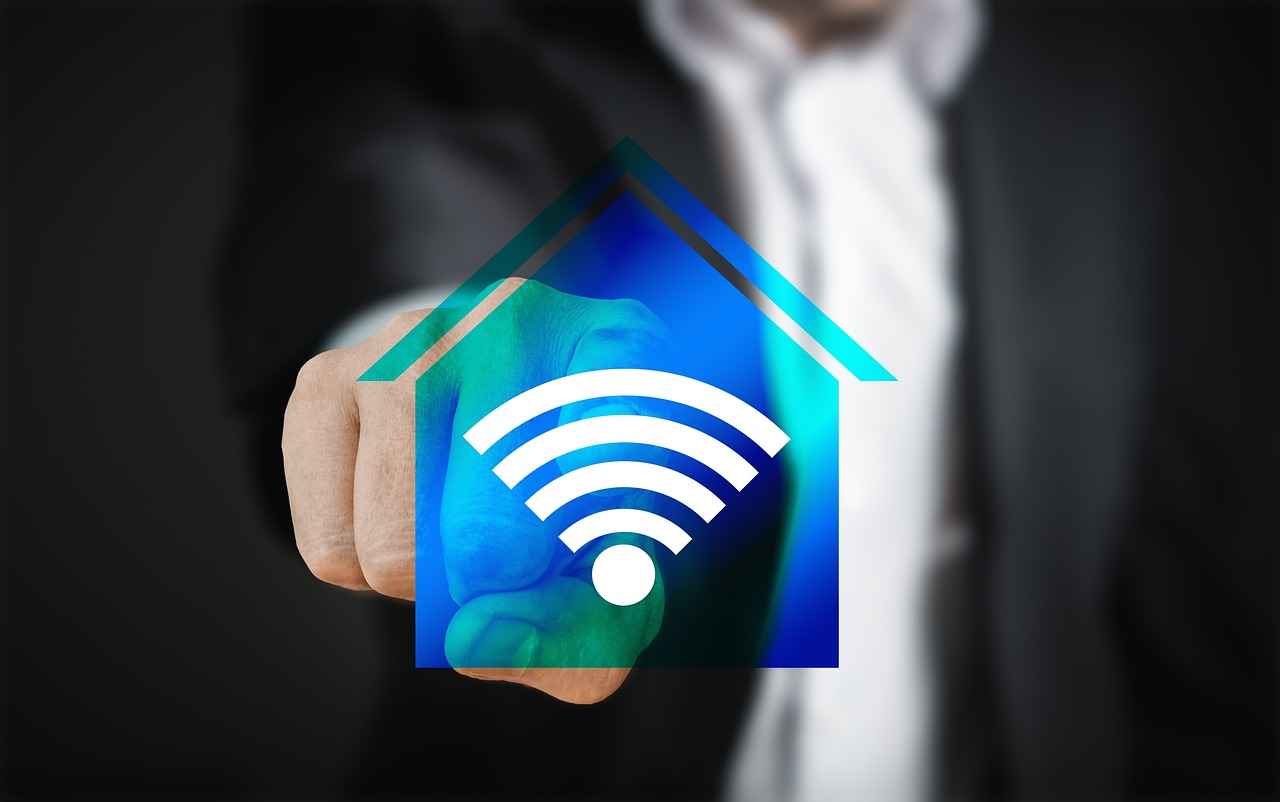
Conclusion: Embracing AI for a Smarter Home
In today’s fast-paced world, embracing AI smart home devices has become essential for those seeking to enhance their living experience. These devices offer an array of benefits that cater to the demands of modern lifestyles, including convenience, security, and efficiency. As technology continues to evolve, the potential for creating smarter homes is expanding, promising even more innovations in the future.
AI smart home devices are designed to automate daily tasks, making life easier and more efficient. For instance, smart thermostats adjust the temperature based on your preferences, while smart lighting systems can change brightness according to the time of day or your activities. This level of automation not only enhances comfort but also leads to significant energy savings, which is beneficial for both the environment and your utility bills.
Moreover, the integration of AI in home security systems provides homeowners with peace of mind. Smart cameras and alarms can detect unusual activities and send real-time alerts, ensuring that your home remains safe and secure. With these advancements, you can monitor your property from anywhere, further enhancing the feeling of safety.
Additionally, AI smart home devices simplify daily routines through voice-activated assistants, which allow for hands-free control of various appliances. This feature is particularly advantageous for busy individuals who need to manage multiple tasks simultaneously.
As we look to the future, the integration of AI with the Internet of Things (IoT) will create even more interconnected and intelligent home environments. The advancements in machine learning will empower these devices to learn from user behavior, providing an even more personalized experience.
In conclusion, embracing AI smart home devices is not just about keeping up with technology; it is about enhancing your quality of life. The convenience, security, and efficiency they offer are invaluable, making them a worthy investment for any modern household. As these technologies continue to evolve, the possibilities for smarter living are boundless.
Frequently Asked Questions
- What are AI smart home devices?
AI smart home devices are advanced technologies that use artificial intelligence to automate tasks, enhance security, and improve overall home management efficiency. They can learn from your habits and preferences, making your life easier and more convenient.
- How do AI devices improve energy efficiency?
AI devices like smart thermostats and lighting systems optimize energy usage by learning your routines. For instance, a smart thermostat can adjust the temperature when you’re away, leading to significant savings on your utility bills while also being eco-friendly.
- Are there any security concerns with AI smart home devices?
Yes, there are some privacy concerns since these devices collect data to function effectively. It’s essential to choose devices from reputable brands and understand their data privacy policies to ensure your information remains secure.
- Do I need a stable internet connection for AI smart home devices?
Most AI smart home devices rely on a stable internet connection to operate effectively. If you live in an area with poor connectivity, this could impact the functionality of your devices.
- What is the future of AI in smart homes?
The future looks bright! With advancements in technology, we can expect even more integration of AI with the Internet of Things (IoT), leading to smarter homes that can seamlessly communicate and adapt to your needs.

